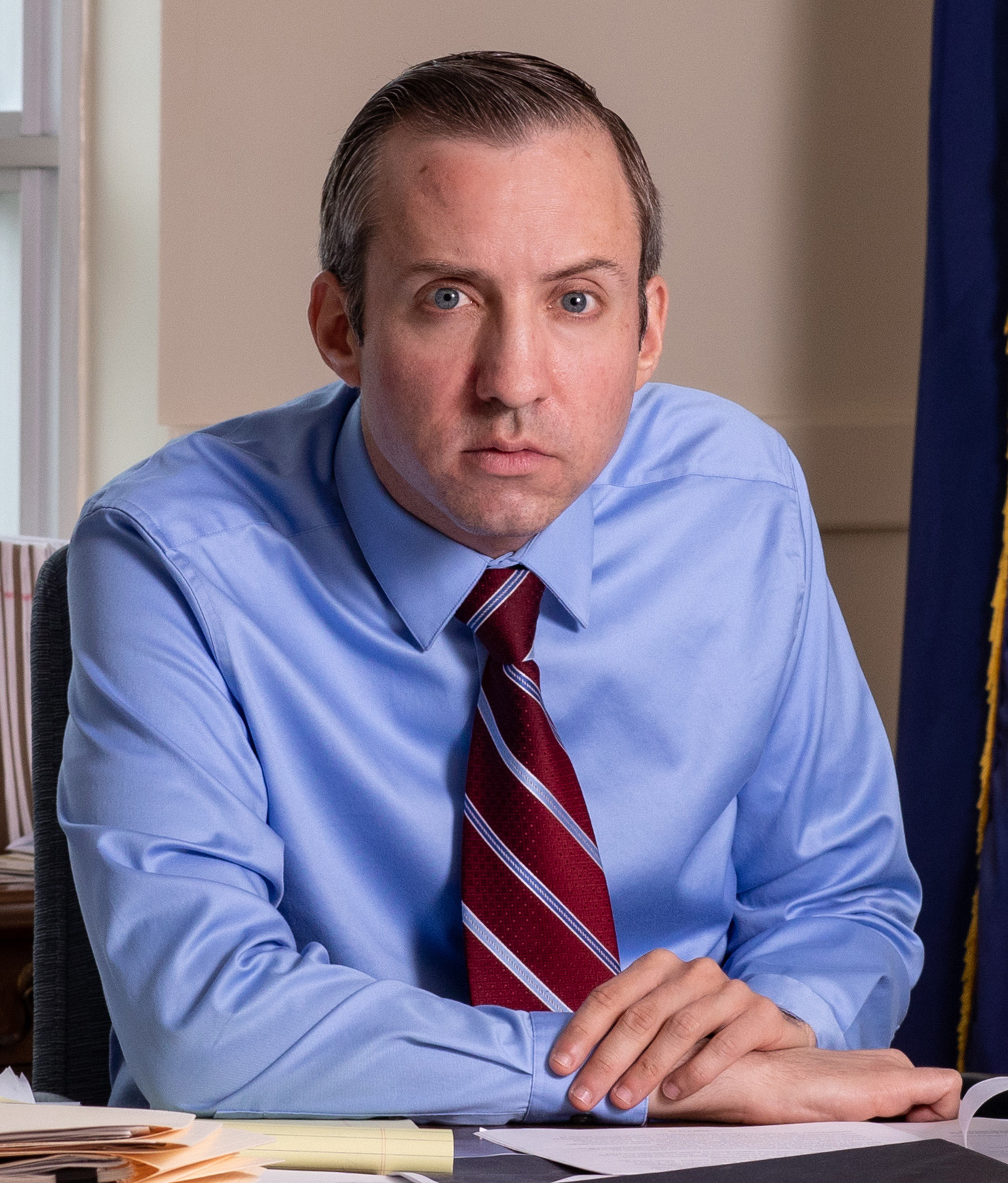AG joins suit to bar its use by retirement plans
New Hampshire has joined 24 other states in seeking to scotch the Biden administration’s initiative to allow fiduciaries managing the assets of retirement plans to weigh climate change, along with environmental, social and corporate governance factors — collectively known as ESG — in the balance of their investment decisions.
In January, the 25 states — 23 with Republican governors and two with Republican attorneys general — filed suit in U.S. District Court in Texas to enjoin a rule adopted by the Labor Department, which was slated to take effect on Jan. 30. Earlier, 19 of these same states, but not New Hampshire, launched an investigation into the role of the nation’s six largest banks — Bank of America, Citigroup, Goldman Sachs, JP Morgan Chase, Morgan Stanley and Wells Fargo — in the Net-Zero Banking Alliance, a climate initiative convened by the United Nations.
The Labor Department rule reverses a rule adopted by the Trump administration that effectively prohibited fiduciaries from applying nonpecuniary criteria when making investment decisions by loosening constraints imposed by the Employee Retirement Income Security Act of 1974, or ERISA.
The rule abandons the distinction between pecuniary and non pecuniary factors that runs through ERISA, relieving fiduciaries of the duty to consider only pecuniary factors in evaluating investments. Instead, it prescribes that fiduciaries should base investment decisions on material factors they determine are susceptible to a risk and return analysis, which may include climate change as well as ESG factors. Moreover, fiduciaries may exercise discretion in weighting these factors in their analysis.
In a press release explaining his decision to join the litigation, Attorney General John Formella, said, “This action is all about protecting the hard-earned retirement savings of Granite Staters and of Americans all across the country. Asset managers should not have an automatic green light to just start directing trillions of U.S. retirement dollars into ESG investments without their clients directing them to, and that’s exactly what they’ll get starting next week if we don’t stop this. Dollars and cents should be driving crucial and potentially risky investment decisions for people, and the policy objectives of an asset manager should not play a role. Federal law has long required fiduciaries to place their clients’ financial interests at the forefront, and that is something that should not change.”

ESG investing, says New Hampshire investment advisor Casey Snyder, ‘is society’s effort to go back in time and start doing the right thing for employees and communities again.’
‘Woke capitalism’?
The lawsuit hinges on two major arguments. First, the states claim that by adopting the rule, the Labor Department has overstepped its authority, not least in light of the sheer magnitude of the financial assets in play. ERISA applies to 747,000 retirement plans, 2.5 million health plans and 673,000 other welfare benefit plans, which altogether cover some 152 million people, nearly two-thirds of the adult population and hold $12 trillion in assets, equal to half the gross domestic product.
The states argue that the “major questions doctrine” applies to the Labor Department rule, just as it did to the Environmental Protection Agency when it sought to expand its authority to regulate greenhouse gas emissions. Last year, the Supreme Court ruled the EPA exceeded the authority granted by Congress.
The states also claim that the rule contradicts ERISA. The suit cites an opinion of the Supreme Court in 2014 that held that in the context of retirement plans, benefits “must be understood to refer to financial benefits (such as retirement income) and does not cover nonpecuniary benefits.” The rule, the states insist, “contravenes ERISA’s clear command that fiduciaries act with the sole motive of promoting the financial interests of plan participants and their beneficiaries.”

‘Practically speaking, it is unenforceable,’ testified Bank Commissioner Emelia Galdieri about a bill seeking to curb investment decisions based on environmental, social and corporate governance factors in New Hampshire.
With the litigation, the GOP has stepped up its campaign against what Republican politicians have branded “woke capitalism” — a campaign that began when the rule was first published in November 2020.
Writing in The Wall Street Journal, then Vice President Mike Pence warned, “The woke left is poised to conquer corporate America and has set in motion a strategy to enforce their radical environmental and social agenda on publicly traded corporations.”
Since then, 17 states, all governed by Republican majorities, have enacted more than 40 laws to prohibit or penalize financial firms that apply ESG criteria to their investment decisions.
The American Legislative Exchange Council (ALEC), a conservative organization funded by corporate donors and family foundations, including the Koch family, has prepared model legislation for state legislatures that would bar companies with 10 or more employees from receiving state contracts if they take into account any “social, political, or ideological interests to limit their commercial relations with fossil fuel, logging, mining, or agriculture businesses.”
In 2021, Texas prohibited local governments from contracting with firms allegedly refusing to invest in fossil fuel and firearm companies. Five — JP Morgan Chase, Goldman Sachs, Citigroup, Bank of America and Fidelity — which together underwrote 35 percent of all public debt, left the market.
Subsequently, a study by the Wharton School of Business at the University of Pennsylvania found that diminished competition left municipalities in Texas with between $303 million and $532 million additional interest on $32 billion in bonded debt. Texas later barred 10 firms, including BlackRock, the world’s largest asset manager, and 348 other investment funds, from doing business with the state.
In Florida, Gov. Ron DeSantis charged that ESG “sacrifices returns at the altar of the select few, unelected corporate elites and their radical woke agendas,” and last year forbid state pension funds from investing with firms that consider ESG factors. In January, he reaffirmed the policy and announced a legislative package to ensure, as the state’s chief financial officer, Jimmy Patronis, said, not “a single penny of our dollars is going to woke funds.”

‘Federal law has long required fiduciaries to place their clients’ financial interests at the forefront, and that is something that should not change,’ says New Hampshire Attorney General John Formella. (Photo by Kendal J. Bush)
Growing preference
Ironically, the same politicians who tout the magic of free markets and clamor for less government regulation are those seeking to constrain the mechanics of the market by displacing the judgment of asset managers with that of public officials.
By opening investment strategies and decisions to ESG factors, the Labor Department rule acknowledges a growing preference and practice of the in vestment community.
A survey undertaken by Russell Investments found 82 percent of asset managers based in the United States consider ESG factors in their investment decisions. Likewise, the CFA Institute, a global organization serving investment professionals, found 85 percent of asset managers consider ESG factors a priority. ESG is even more pervasive in the European investment community.
Witold Henisz, director of the ESG Initiative at the Wharton School, said global assets under management that claim to take ESG factors into account total some $35 trillion, which represents between 30 and 35 percent of all global assets under management.
In a series of videos, Henisz explains that ESG factors reflect material risks to a company’s financial performance, which in turn bear on its value to shareholders. For instance, environmental problems may impose costs or fines, frayed labor relations may diminish productivity or increase turnover and unsound corporate governance saps capacity to manage risk.
In its simplest sense, ESG addresses these risks by turning what may impose costs on communities, employees and shareholders into benefits. However, Henisz acknowledges that quantifying and measuring these costs and benefits has proven a challenge.
At the same time, in a report for McKinsey & Company, Henisz stressed that “the overwhelming weight of accumulated research finds that companies that pay attention to environmental, social and governance concerns do not experience a drag on value creation — in fact, quite the opposite.”
Morningstar, a financial services and research firm, has reported that about 60 percent of ESG funds outperformed others between 2010 and 2020 and in 2021 returned 33.3 percent, topping the broader market by 8 percent.
“The findings debunk the myth that there is a performance penalty associated with ESG investing,” reported Alyssa Stankiewicz of Morningstar.
Casey Snyder, managing director of wealth management at The Sedoric Group of Steward Partners in Portsmouth, said that in the past, “doing the right thing meant taking care of your employees, your client base and your community, and all were equally weighted.” He said that since then this approach to corporate responsibility “morphed into prioritizing shareholder value at the expense of employees and the community.”
ESG, Snyder said, “is society’s effort to go back in time and start doing the right thing for employees and communities again.”
The challenge, he added, is to quantify or score the beneficial effects of ESG, which has so far proved elusive given the subjective character of ESG factors. On the other hand, he said those factors should not be ignored and suggested it might be more helpful to consider the costs of not addressing the issues posed by ESG, particularly climate change.
Joe Keefe is president of Impax Asset Management LLC in Portsmouth. In 1971, Impax, then named Pax, founded the Pax Fund, the first public mutual fund in the country to include environmental and social criteria in addition to financial criteria in the investment process. Today, Impax incorporates ESG factors in all of the investment strategies it manages.
Keefe said that “looking at climate change and other ESG factors can help investors spotlight the risks and opportunities that investors will face as the global economy transitions toward a more sustainable model. “We need to invest in the next economy, not the last one,” he said.
Examining ESG factors, Keefe stressed, can help build more resilient investment portfolios. Moreover, fiduciaries who manage retirement funds are obliged to consider all material factors, including ESG factors, in weighing investment options, he said.
In fact, Keefe suggested they may be breaching their fiduciary duty by failing to do so.
“Investors will not be well served by restricting the choices open to them and by substituting politics for the marketplace,” Keefe said. ”Let the market do its work.”
ESG addresses risks by turning costs on communities, employees and shareholders into benefits, but measuring these costs has proved challenging.